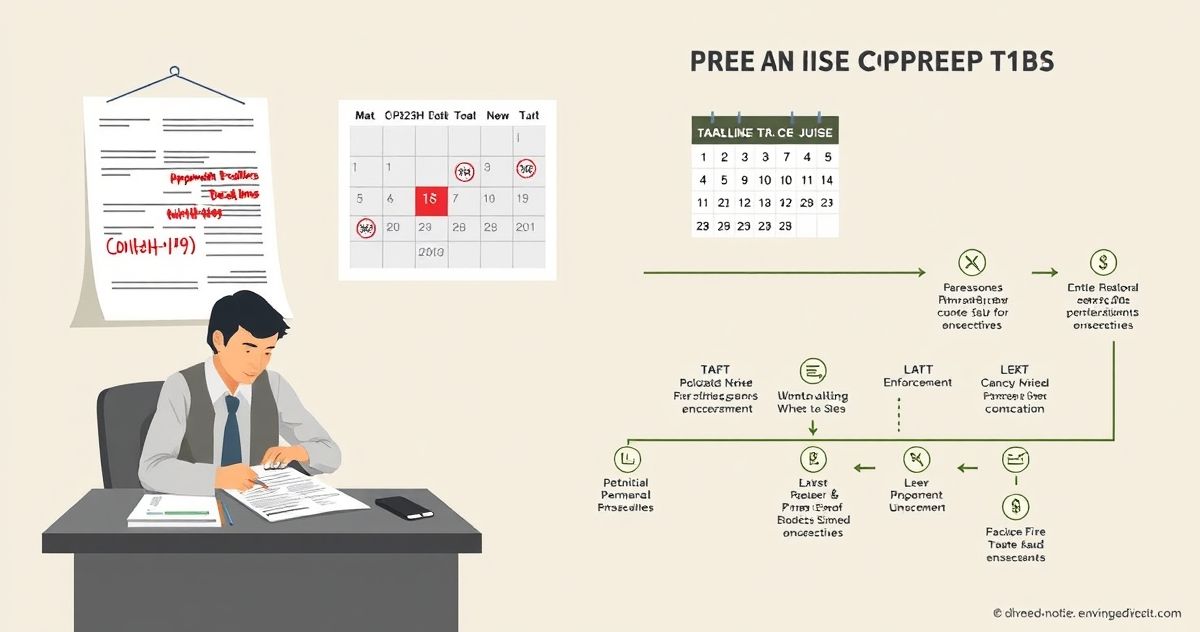Understanding the CP523H Notice
The CP523H Notice is an important communication tool used by the Internal Revenue Service (IRS) to inform taxpayers of significant changes related to their tax installment agreements. Receiving this notice means there have been changes or issues regarding a taxpayer’s ability to meet the terms of an existing agreement to pay off tax liabilities over time. Let’s break down what the CP523H Notice entails, its features, compliance requirements, and the repercussions of failing to adhere to its terms.
What is the CP523H Notice and Its Primary Purpose?
The CP523H Notice primarily serves as a formal notification from the IRS to taxpayers, alerting them about significant modifications to their installment payment agreements. It could signal issues such as missed payments or changes required by the IRS regulations. The notice is pivotal because it marks the potential transition of a taxpayer’s account status from a manageable payment arrangement to one with risks of penalties or enforced collections.
Key Features and Components of the CP523H Notice
The CP523H Notice comprises several critical elements:
- Details of Change: Clear explanation of the variance in the installment agreement, such as due payment not received or modification in terms.
- Payment Due Reminder: Information on the missed payment amounts, new balance due, or confirmation that specific terms are not being met.
- Revised Payment Plan Information: The notice usually includes details on how to rectify the situation to continue with the plan under possibly revised terms.
- Instructions for Action: Directions for rectifying the issue, including deadlines for compliance to avoid defaulting the agreement.
Relevant Filing or Compliance Requirements
Once a taxpayer receives a CP523H Notice, immediate actions are often necessary to resolve any issues with the existing payment plan:
- Contacting the IRS: Taxpayers typically must contact the IRS promptly to understand the notice’s implications fully and negotiate re-establishment terms of the installment plan.
- Making Payments: It’s crucial for taxpayers to remit any overdue amounts immediately and ensure future payments are timely to re-secure the installment agreement.
- Documentation: Taxpayers may need to submit additional documentation if changes in financial situations require adjusting payment terms under the agreement.
Penalties or Consequences for Non-Compliance
Non-compliance with the terms of the CP523H Notice can lead to significant financial repercussions:
- Cancellation of Installment Agreement: Failure to act may lead to the IRS canceling the installment agreement, making the entire outstanding balance due immediately.
- Interest and Penalties: Accumulation of additional interest and penalties due to late payment of tax liabilities.
- Enforcement Actions: The IRS might initiate severe collection actions, such as liens or levies, against a taxpayer’s assets or wages if the default is not corrected.
Importance or Significance in Tax Resolution or Compliance
The CP523H Notice’s importance lies in its role as a safeguard for maintaining proper taxpayer compliance and financial responsibility. It’s fundamental for several reasons:
- Proactive Communication: It informs taxpayers early about potential issues, allowing them to act promptly to avoid harsher consequences.
- Financial Planning: Understanding and addressing the CP523H enables better financial planning and management of tax-related debts.
- Tax Debt Resolution: Adhering to the notice guides taxpayers to follow compliance paths for resolving or re-negotiating their debt, potentially averting more aggressive IRS collection tactics.
In conclusion, managing a CP523H Notice involves understanding its context, taking swift corrective actions, and maintaining communication with the IRS to resolve or amend installment payment agreements effectively. This ensures ongoing compliance and prevents escalation to more serious financial enforcement measures, ultimately safeguarding a taxpayer’s financial health.

